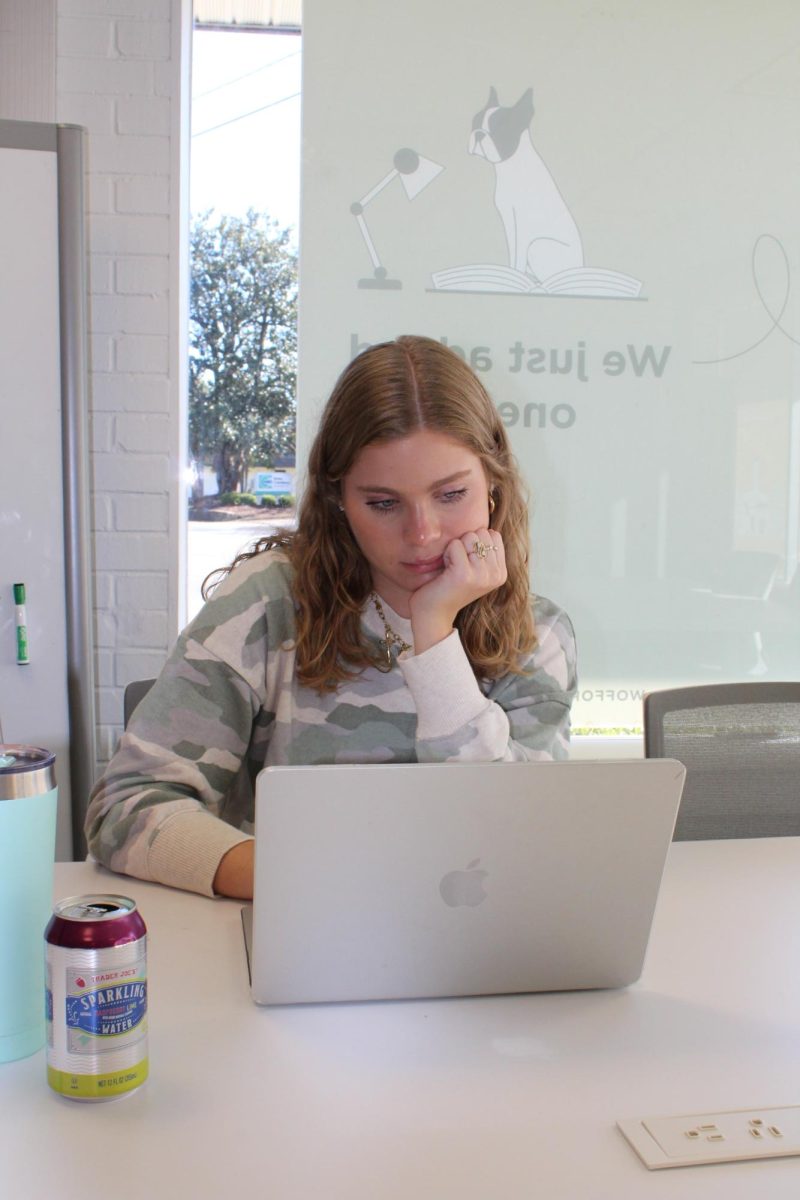HELPING YOUR FRIENDS HAS NEVER BEEN EASIER—
Self-help books. Yahoo Answers. Magic 8 balls. We seek advice on our lives from many sources, trying to find solutions to our problems to make our lives flawless and wholesome. But why seek out advice that may be beneficial to you? Logically speaking, receiving bad advice allows you to experience mistakes. And mistakes make you better in life. So therefore, receiving bad advice will give you a better life. To help you get on your way to help others, we’ve devised a professional guide on how to deal out this helpful bad advice.
1. If someone is torn between a couple different choices and has to make a decision, recommend the choice that benefits you the most. Why take the person’s life into account? This is your opportunity to move up in life without having to do much work. Is your friend unsure of which person to date? Tell them to choose the person that works at Chipotle so you can exploit their employee discount. Sure, that person has a record of muttering to themselves in the bathroom while making direct eye contact with other people, but…employee discount. Giant burritos. You get the picture.
2. Use vague language when providing your advice. For example, let’s say someone needs advice on something they want to wear to a formal event. Suggest they wear a color that is not too dark but not too light that has a bluish-brownish-yellowish-reddish tint to it with hints of purple. They should wear something comfortable but not casual but not too overdone but not too underdone. Luckily, some of these vague terms already exist in the English language for you to use such as business casual and semi-formal. Your friend will be confused for days on what they should actually wear, making your job a success.
3. Try to make them cry. These tears can be achieved either through guilt trips, bringing up their past failures, or any other form of lowering their self-worth. Why hurt the person you are trying to advise? Because by attacking their happiness, you can get them to accept their weaknesses and become a stronger person. Try calling your buddy pond scum for 10 days straight. Spread false rumors about this person, like saying they are allergic to human contact so no one talks to them. Then tell this person that everyone thinks they smell bad. Not only will it help your pal out, but you’ll get the satisfaction of making someone feel worse which, as we all know, can only make you feel better. It’s just a simple fact: bad advice can help everyone.
4. Tell them false information. Using fake statistics will hopefully convince your patient—I mean, your friend—that they should act in the way you deem best (and by best of course we meant the utmost, worst possible action they could take). In fact, 80 percent of people who have used this technique find that people are more willing to believe other facts that they say. Yes, that’s right, 60 percent. Let’s say your patient—I mean, classmate—is unsure of whether they want to go to grad school. You could present them with the following advice: You know, only 23 percent of intelligent people make it into grad school, and of those 23 percent 60 percent say they would rather be flipping burgers than going through the terror they are experiencing now. And gap year students? Students who decided a gap year would fit best with their schedule experience a 55 percent higher chance of having scarring memories from middle school haunt them randomly throughout their 30s than people who do not take a gap year. When in doubt, cite Wikipedia.
5. Find a public platform to share your unhelpful tips. That way, a wider audience may experience sorrow, error and pain thanks to you. These platforms can be anything from websites to flyers to public speaking events and sometimes, even newspapers, though this column has never offered any advice that wasn’t truly helpful.*
*This does not include the article “Hijinks and shenanigans” where we advised students to start a new tradition which included trapping squirrels and any dissenters to the new tradition as well. As it turns out, a student was put in a trap and fed only Burwell food for five straight days. When we followed up apologizing about the incident and asking what living in the trap was like, the student responded that it honestly felt no different than college life before. Again, we apologize for the incident.
6. Take your own bad advice. Talk yourself out of amazing opportunities. Sabotage your own relationships. Life wasn’t a struggle enough beforehand, so why not make it downright miserable for yourself? No one likes a figurehead who preaches “do as I say, not as I do,” so take a bit of your own medicine. In no time you’ll be leading a better life. Will it feel worse? Yes, but think about how bad you feel when you start a paper or you study for a test. Don’t you feel better at the end of it all? Don’t you? We’re seriously asking. Does the emptiness ever fade away? Can you ever regain that smile that once graced your face? Is it too late for us? Are we doomed to forever fail? Please respond in the op-eds with your answers. We seek your bad advice.
There you have it, how to give bad advice to not only your peers but yourself. In about three weeks you should notice a significant change in your environment. People may stop talking to you. Friends may start ignoring you. You may never be able to look in the mirror again. But at least in the end you can sleep easy at night knowing all the helpful advice you’ve given out has had an effect on so many people.

























